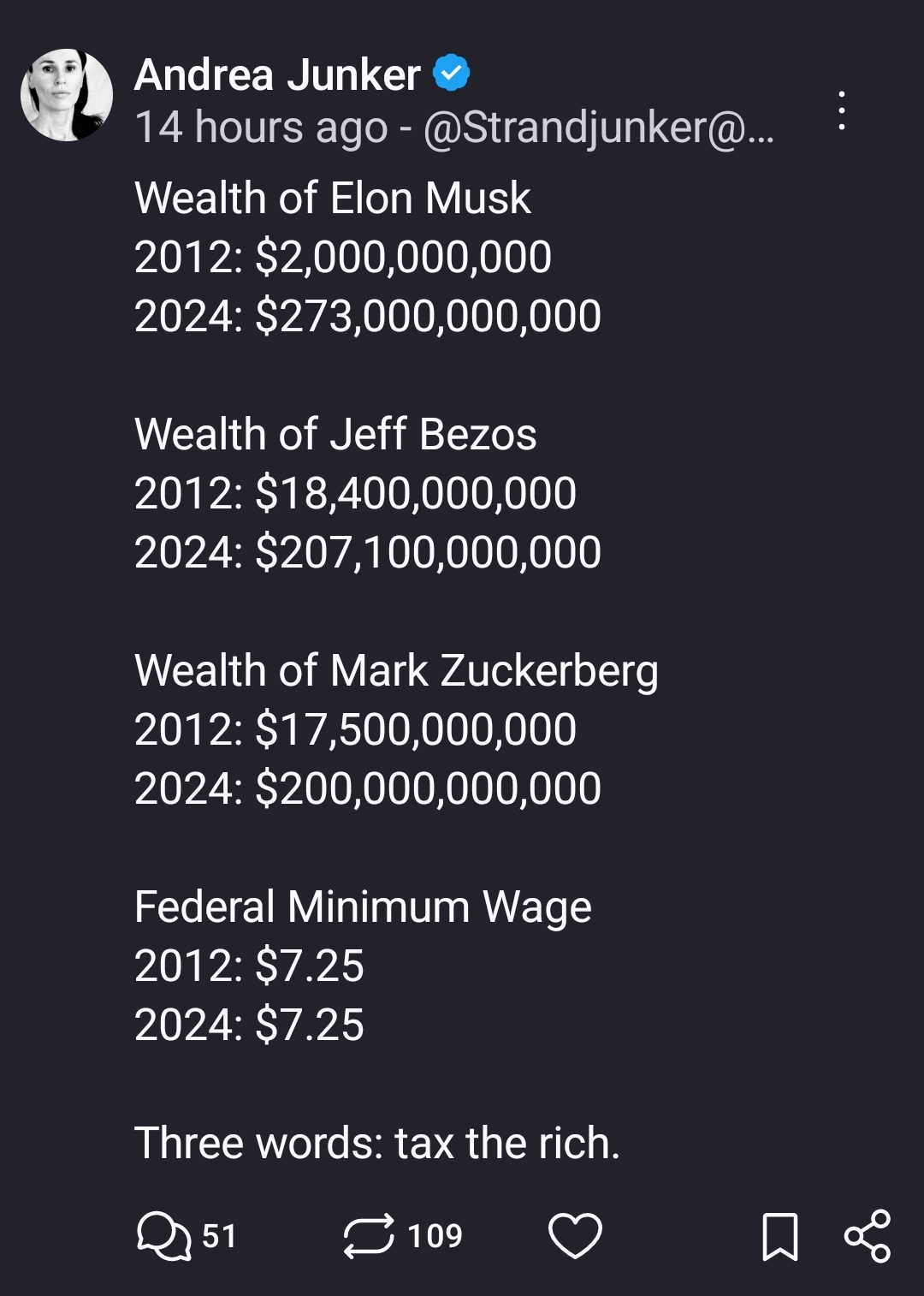this post was submitted on 26 Oct 2024
1520 points (98.5% liked)
People Twitter
5145 readers
856 users here now
People tweeting stuff. We allow tweets from anyone.
RULES:
- Mark NSFW content.
- No doxxing people.
- Must be a tweet or similar
- No bullying or international politcs
- Be excellent to each other.
founded 1 year ago
MODERATORS
you are viewing a single comment's thread
view the rest of the comments
view the rest of the comments

Again, just baseless conjuncture that sounds "almost right". You have the general principles, you even reference Econ 101, but analysis and expert opinion goes further (why there's so many armchair champions out there, unfortunately). Please cite some actual sources that have analyzed the systems and what your perspective has been formed by. This just seems like base-level pandering that gets no where like a "group chat" on one of the mainstream news outlets.
Things do not happen in a sterile chamber. You can't create union movements when they're getting destroyed by officials
Your AI argument is fear mongering, as I stated above, with sources, a net increase in jobs is projected. This is the telephone/computer technology fear now for the 2020's. You've yet to provide an actual argument for why technology shouldn't proceed. Should oil and gas not go through the same transition? God forbid we have less administration and more skilled workers, as my sources concluded would be the outcome.
Yes, supply-demand is a fundamental pricing mechanism, as econ 101 will teach. Unfortunately the subsequent classes that economists take after also include the million different factors with changes that mechanisms output. For further understandings, I would suggest Unlearning Economics (here is one of his videos going over a Sabine Hossenfelder's video on capitalism). He comes with credentials,
Piketty's Capital in the 21st Century is a solid one.
Richard Wolff also has a great podcast on the subject
That is part of the strategy to depress wages, certainly. But substandard substitution is also a standard business strategy.